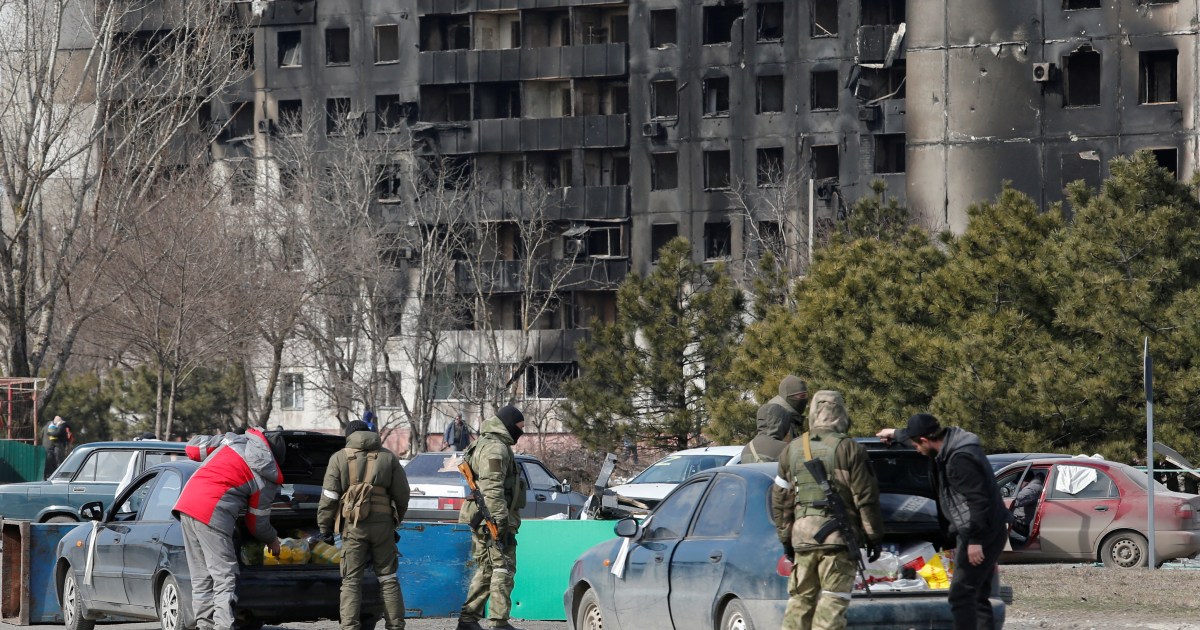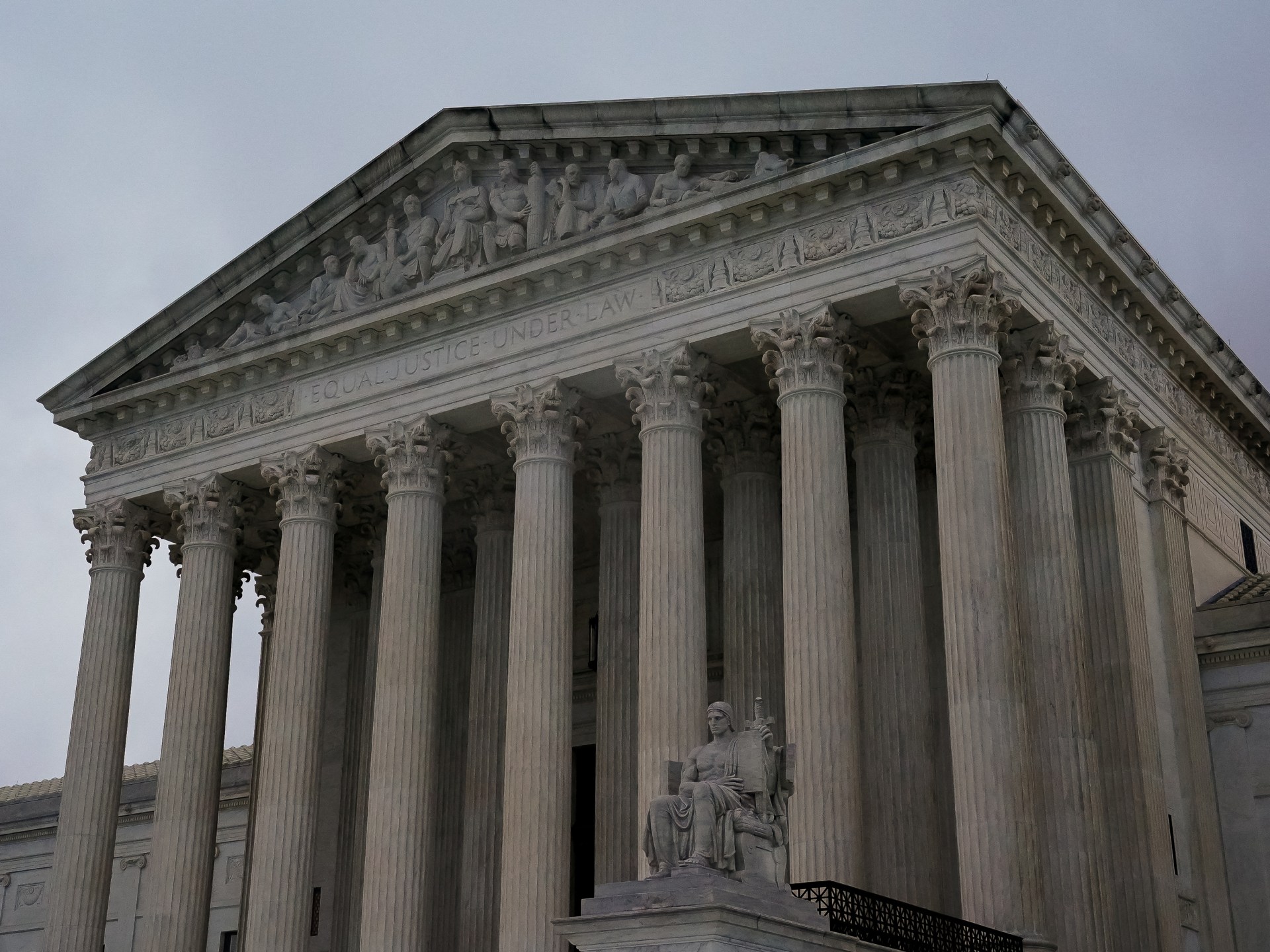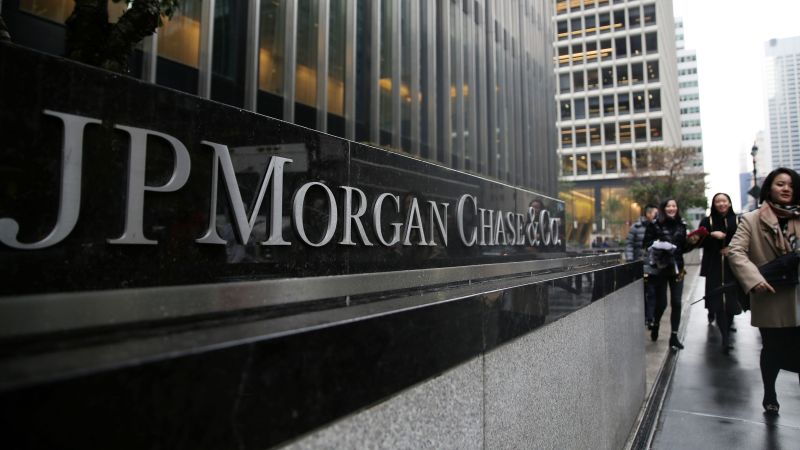Russia and Ukraine fight for control of besieged Mariupol
Russian and Ukrainian forces have continued to fight for the besieged port city of Mariupol, as Ukrainian President Volodymyr Zelenskyy appealed to Israel for help in pushing back the Russian assault on his country.
Hundreds of thousands of residents remain trapped in the city, which has been encircled and bombarded by Russian forces for more than two weeks, with little if any food, water and power.
Fighting continued inside Mariupol on Sunday, regional governor Pavlo Kyrylenko said, and tearful evacuees from the devastated city on the Sea of Azov described how “battles took place over every street”.
Russian forces bombed an art school on Saturday in which 400 residents were sheltering, but the number of casualties was not yet known, Mariupol’s council said.
Al Jazeera could not independently verify the claims. Russia made no immediate comment on the alleged attack and denies targeting civilians.
Ukraine President Volodymyr Zelenskyy described the siege of Mariupol as a war crime.
“To do this to a peaceful city … is a terror that will be remembered for centuries to come,” he said late on Saturday.
City officials said at least 2,300 people have died, with some buried in mass graves.
Some who were able to flee Mariupol tearfully hugged relatives as they arrived by train Sunday in Lviv, about 1,100 kilometres (680 miles) to the west.
“Battles took place over every street. Every house became a target,” said Olga Nikitina, who was embraced by her brother as she got off the train. “Gunfire blew out the windows. The apartment was below freezing.”
Maryna Galla narrowly escaped with her 13-year-old son. She said she huddled in the basement of a cultural center along with about 250 people for three weeks without water, electricity or gas.
“We left (home) because shells hit the houses across the road. There was no roof. There were people injured,” Galla said, adding that her mother, father and grandparents stayed behind and “don’t even know that we have left”.
Capturing Mariupol would help Russian forces secure a land corridor to the Crimea Peninsula that Moscow annexed from Ukraine in 2014.
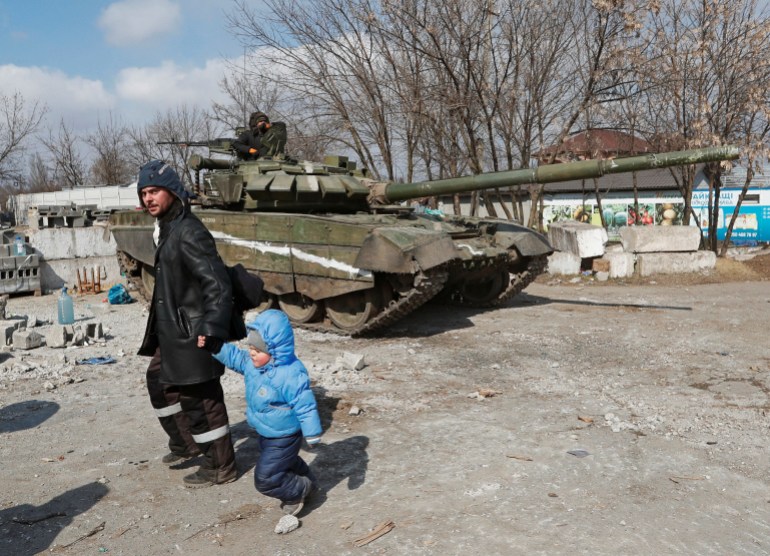
Putin says Russia’s “special operation” is aimed at disarming Ukraine and rooting out dangerous nationalists. Western nations call it an aggressive war of choice and have imposed punishing sanctions aimed at crippling Russia’s economy.
The UN refugee agency said 10 million people had now been displaced across Ukraine, including some 3.4 million who have fled to neighbouring countries such as Poland.
The UN human rights office said at least 902 Ukrainian civilians had been killed as of midnight Saturday, though it says the real toll is probably much higher. Ukrainian prosecutors said 112 children had been killed.
Situation in other cities
Al Jazeera’s Assed Baig, reporting from the northeastern city of Kharkiv, said residents have been facing constant bombardment.
“We’ve heard heavy artillery firing all morning and all afternoon,” he said. “This is what Ukrainians here are facing: constant bombing, missile strikes, shelling, [and] heavy artillery.”
According to the mayor of Ukraine’s second city, more than 600 buildings including schools and hospitals were destroyed.
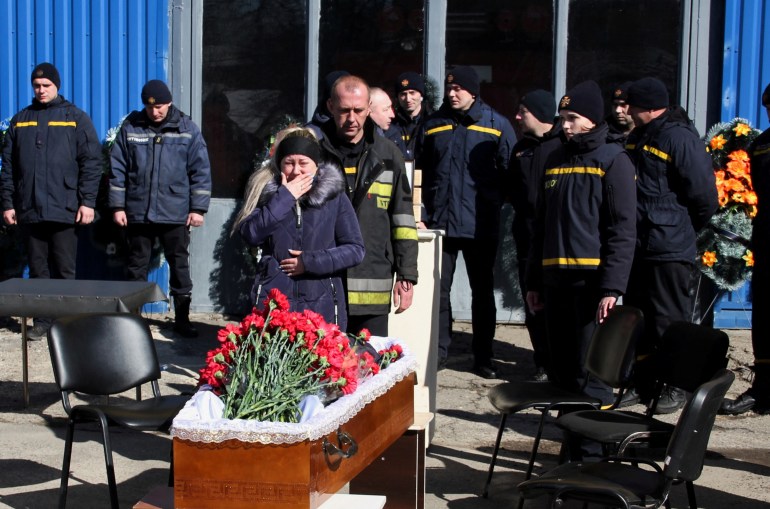
In the southern city of Kherson, the only city that Russian forces have captured since the invasion was launched on February 24, a video clip obtained by Reuters showed dozens of protesters, some wrapped in Ukraine’s blue and yellow national flag, chanting “Go home” in Russian at two military vehicles bearing Russian markings.
The vehicles turned and left the area.
Meanwhile, Russia’s defence ministry said cruise missiles were launched from ships in the Black Sea and Caspian Sea, as well as hypersonic missiles from Crimean airspace.
Hypersonic missiles travel faster than five times the speed of sound and their speed, manoeuvrability and altitude make them difficult to track and intercept.
‘Close to agreement’
Turkey said Russia and Ukraine made progress in negotiations to halt the war and that the two sides were “close to an agreement”.
“Of course, it is not an easy thing to come to terms with while the war is going on, while civilians are killed, but we would like to say that momentum is still gained,” foreign minister Mevlut Cavusoglu told reporters.
Kyiv and Moscow reported some progress last week towards a political formula that would guarantee Ukraine’s security, while keeping it outside NATO – a key Russian demand – though each side accused the other of dragging things out.
In an interview with CNN, Zelenskyy reiterated that he was ready for talks with Putin and that the war would not end without negotiations.
“So, I think that we have to use any format, any chance in order to have the possibility of negotiating, the possibility of talking to Putin,” he said. “But if these attempts fail, that would mean that this is a Third World War.”
Later on Sunday, Zelenskyy addressed the Israeli parliament by video link and questioned Israel’s reluctance to sell its Iron Dome missile defence system to Ukraine.
“Everybody knows that your missile defence systems are the best … and that you can definitely help our people, save the lives of Ukrainians, of Ukrainian Jews,” said Zelenskyy, who is of Jewish heritage.
Israel has rejected pleas to provide arms to Ukraine or impose sanctions against Russia or its oligarchs, some of whom are Jewish and have strong ties to Israel.

